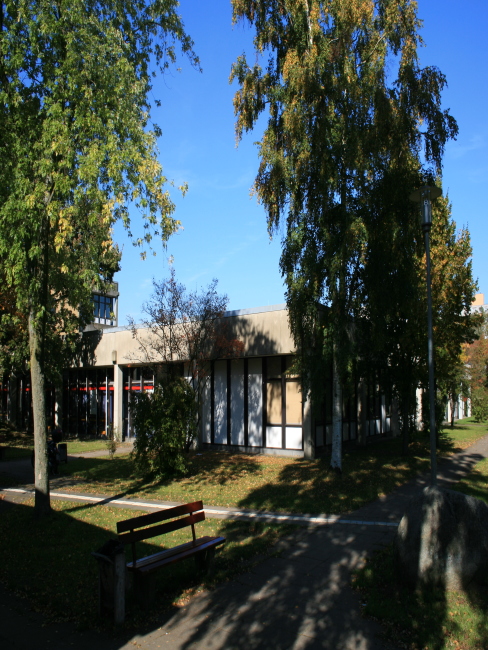The Thor - Heyerdahl - Gymnasium in Kiel, Germany



The Thor-Heyerdahl-Gymnasium is a suburban grammar school. Most of our pupils live either in our district (Mettenhof) or in rural areas around Mettenhof. Our school has around 660 pupils, with 60 teachers, and is characterized by a high percentage of pupils with a migration background (over 1/3). Therefore our primary aim is to enhance their linguistic and cultural integration. We achieve these goals through our social program (Lions Quest) and linguistic program (Mercator etc.). The result is a high percentage of immigrant children who achieve their ‘Abitur’ (the final high school leaving certificate).
The school doesn't have any special needs teachers, but we are able to ensure that students with fewer opportunities will be fully involved in the project activities because they are already fully integrated thanks to the help provided by technical aids, social benefits, school social workers and school psychologists for the Kiel area, with whom we regularly collaborate.
We have participated in an Erasmus+ partnership called "National and local differences - an inspiration for political action and active citizenship" funded in 2015, but we haven't carried out any other European projects since then.
Germany is a country where environmental policies have long been enforced, so we strongly believe we can give our contribution to the project topic by showing some best practices.
Our Motivation to take part in this project:
As we all need to make sure that our way of living changes from inconsiderate consumerism to a considerate and sustainable lifestyle, the THG wants to develop a practicable way to achieve this. We want to work out strategies that can be integrated in our school’s everyday life because we are of the opinion that this is the only way we can really change something effectively. The development of an increased awareness of what is happening in our world and the knowledge of the interrelations and consequences of our own actions is the key to change.
The first steps have already been taken by our highly motivated students who have developed a sustainable concept of consumption for their self-run student café (fair trade and cooperation with local farmers).
Due to these reasons, our school is eager to broaden and establish long-term relationships with other European schools to learn from one another and to work towards a common plan of action concerning a sustainable future.